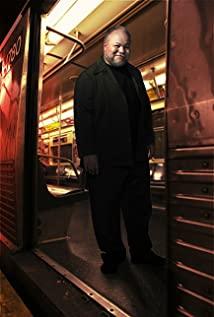Your face that floats in the waves and mist
has always been a clock face
that can not be written. What can I remember
if there is really something, the
wind and waves leave it on the rock wall, leaving it as the
first appearance of the years, the first appearance of
time
────Luoman's "Watching the Sea"
is more difficult to recall than to remember.
Everyone has a past, but they may not be able to remember it, because most of the time, everyone's memory is a labyrinth. Some memories are gradually silent because of too long, and some memories are too heavy and have to be hidden. If there is no token to lead the way, few people can easily return to experience everything in their minds, even if they are the master of this maze. Even sometimes, the maze will confuse the owner in turn, and every time the thinking goes astray, the extracted memory will appear hazy, inaccurate, illusory, or traces of tampering by wishes; even worse, the owner of the maze has no way of knowing. Determine authenticity.
Every memory of human beings is destined to be suspected of being fabricated by the previous memory. Fiction is the ability to create, creation is the ability to dream, and vice versa, reality is powerless and can only let the labyrinth walls of the human mind gradually pile up in the repeated transport of memories and memories. Jorge Luis Borges described it this way:
"People are attached to the past, and my executioners and I have nothing to do with this attachment. But one day, there will be someone who feels the same as me, and he will erase My memory becomes my shadow and mirror without realizing it." ("The Great Wall and Burning Books")
This is why, most of the time, tragedies and suspense dramas involve more memories than experiences. Because memories include not only the objective time and space background, but also the most private and quiet memories of the person involved; digging up the past through memory often digs out the reasons why the person is willing or unwilling to process the past. The self-exploration of the protagonist and the side-by-side attacks of bystanders inevitably make an ordinary inorganic pursuit an offensive and defensive interpretation of the personal life history of excavating privacy.
However, not everyone is happy with this. Yonezawa Honobu wrote a short story in "The Feast of the Lamb" (儚い sheep たちの雲fen): A maid kept her private bookcase for her master. She didn't know why these books could not be seen by outsiders, so out of curiosity, she Also started reading. As the years passed, the maid who always passively accepted the master's selection of books, began to communicate with her master. The bookcase became the source of their common memory and the starting point of the labyrinth of thoughts, making her and her spiritual companions who share the same bed and dream. , at least the maid thought so.
Then she was killed by her master.
In this sense, moviegoers are unquestionably happy, and happy to the point of despicableness. why? Because most of the time, the audience, as an ordinary outsider, with God’s (author’s) consent, narration, editing, and scheduling, can easily skip the lost path of memory and recollection, and directly “peep” the past, the past, the history of the parties or the crowd. This life, and their first appearance. But there is no need to pay any risk of being known by the parties.
This kind of peeping is not reality, because it is so objective that it is outrageous and accurate, and because even if there is a narrow view that is not omniscient at any moment in the picture, it must be screened by the will of God, and there is no way that only the parties can know. The meaning of , the parties not only have no power to reject the eye of the sky, but also have no ability to try to kill the audience when they know the existence of the eye of the sky. The audience is not God, but has the eyes of God for a short time or forever, only the documentary can barely jump out of it (although it is reluctantly). In Josephine Tey's "The Daughter of Time", the protagonist Grant never leaves the hospital bed, and only by crawling through historical materials and wisdom can detect a four hundred years ago. The case of Richard III is still pending; however, when he was released from the hospital, he began to feel some
indescribable discomfort: "It was like an annoying thorn in the back," Grant said. "One likes to study motivations of human actions people do not write history, he will be writing a novel, or become a psychiatrist, or become a magistrate, or become a gold party." ( "Daughter of Time")
Grant said Mans The thorn, of course, does not mean that his body is sick again, but the author Tie Yi expresses his unease with the superhuman character of the easy chair detective through the mouth of the protagonist. But to be more precise, what Tie Yi is really uneasy about is actually the readers, the unease that every reader in the book can be as omnipotent as an easy chair detective, who can easily judge the history and memory behind all possibilities and has rash suspicions.
What makes Manchester by the Sea special is that it does everything possible to get a story entirely in memory away from what the audience sees, treats, and judges with omniscience. Upturned, rather than tragic and sympathetic. There are ten flashbacks in this story about how a man was wounded to weave his inner cage, each of which is a memory and is a key scene; but it is worth noting that the meaning of these pictures is not used to tell the story. be complete.
The audience sees Lee Chandler flashing back and forth to his "past" when he was still living in his hometown while handling his brother's funeral, but they don't see Lee flashing back in these pasts (for example, remembering his daughter's death at the police station) ) of the past, and the flashbacks of Patrick Chandler, who should have missed his father's death; on the other hand, the most important events in the play did not take place in front of the screen. Such as Zhurong's disaster, such as the separation of his ex-wife. These ten flashbacks and ten memories all point to the same thing, that is, the part of Manchester's past that Lee Chandler is unwilling to face, is also a piece of the past that has been hidden for too long and too deep and so tightly cemented that even a clear jump A sticky memory that seems unmanageable in time and space.
The timing of the flash jump is not the point, the length of the flash is, because how long these memories are, shows exactly how heavy they are to Lee Chandler. Anything around Manchester may have brought back memories of his wife at the old family house, and his escape years ago when discussing a move with his concubine. All these things can't be solved with fists like a disturbance in a bar, nor can it be like a cold wind blowing and putting your hands in your pockets. Lee Chandler has no way of controlling Manchester, let alone himself. These uncontrollable arrangements are all trying to make the audience not understand the past from the standpoint of the omnipotent and omnipotent, but to let the audience enter into the confusion of Lee Chandler, and the shock of his memories (recollections) emerge, which can be related to the The audience gets a unified view of the shock.
What this unification seeks is not for the audience to sympathize with Lee Chandler's experience with the rough "substitution" of you in me and me in you. On the contrary, these ten flashes are almost entirely objective lenses, trying to make these pasts closer to objective reality.
Because that's exactly what Lee Chandler wanted. With objective reality first, and then back to subjective memory, what Lee Chandler did is undoubtedly atavistic. If he can really get anything from his unstoppable memories, it is definitely not licking his wounds, but being able to take a serious look at his buried memories with a calm distance. On the one hand, he was recalling what he was trying to forget, and on the other hand, he was also recalling the memory itself.
Finally, when the penultimate flashed memory, his scorched boiler reminded his daughter's past. He was not there at the time. It was the first moment of the whole film. A set of memories that were really fabricated by memories, symbolizing Li Qian Dele was finally able to face up to his own state of mind. Because of the fabricated wish, he finally faced his own heartbreak with the standpoint of knowing his longing, in exchange for a kind of empathy that can only be experienced if he is far enough away. Non-sympathetic, with an intellectual solution to cultivate the mind rather than promiscuity.
"In the end, none of the problems in the story have been resolved. The brother is still dead, the ex-wife has to go, and the male lead is still unhappy."
Yes, the film's ending is unspoken, and none of this has anything to do with cheap self-healing . But that's where the value lies - if Manchester and Boston haven't changed because of his years of repression, how could they have changed because of his sudden outbursts? The audience knows it, Lee Chandler knows it; Patrick Chandler knows it one day.
Luoman has a poem "Watching the Sea", in which he wrote: "
Your face floating in the waves and mist and rain
has always been a clock face
that ca n't be carved. What can I remember
if there is really a
storm. They all left it on the rock wall, leaving it as the
first appearance of
time, the first appearance of time
, Luomen said to himself, this poem describes the sea, but also the creation. Nevertheless, for many years, I have always regarded it as a poem to describe memory and time, because in the face of memory and memory scars, the only thing one can do is to believe in time and time; only these two forces can truly Return everything to zero and forget it, fill in the scars on the wall of the memory palace that are deep in the heart, erase the quiet and silent Dianji in the memory palace, and return to the original appearance.
"The first appearance"——These five words may be the most suitable conclusion for the clock face work "Manchester by the Sea".
(This article is exclusively published in ViewMovie, if you want to reprint, please ask for confirmation first)
View more about Manchester by the Sea reviews











